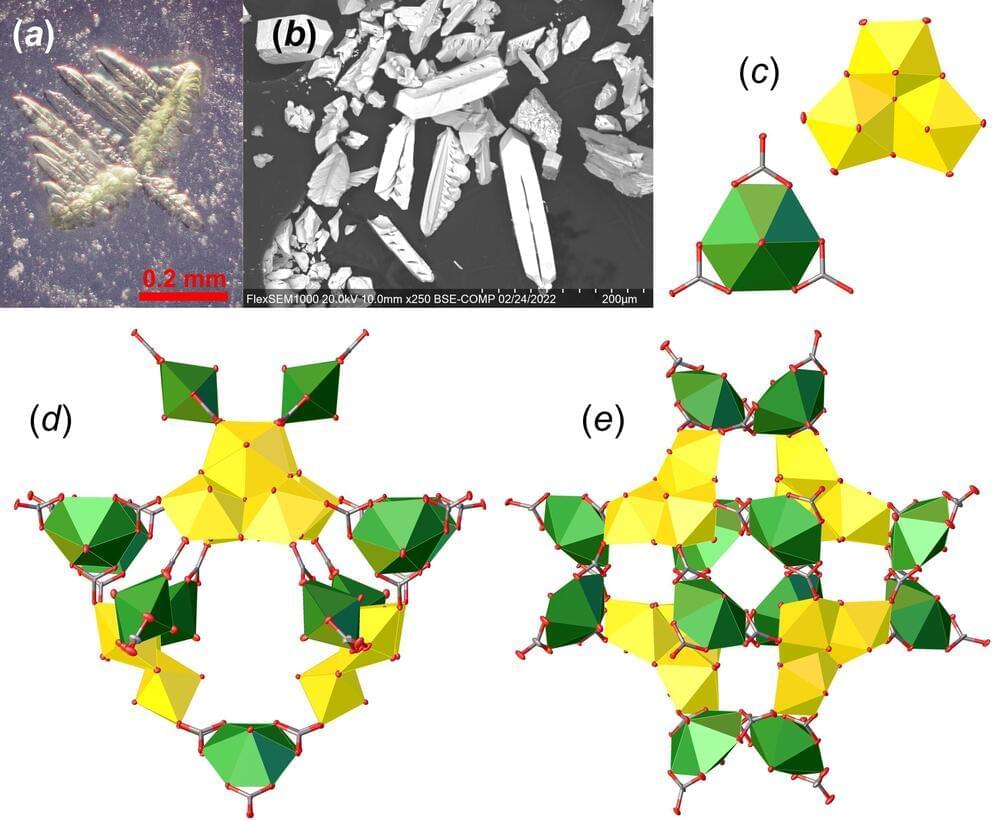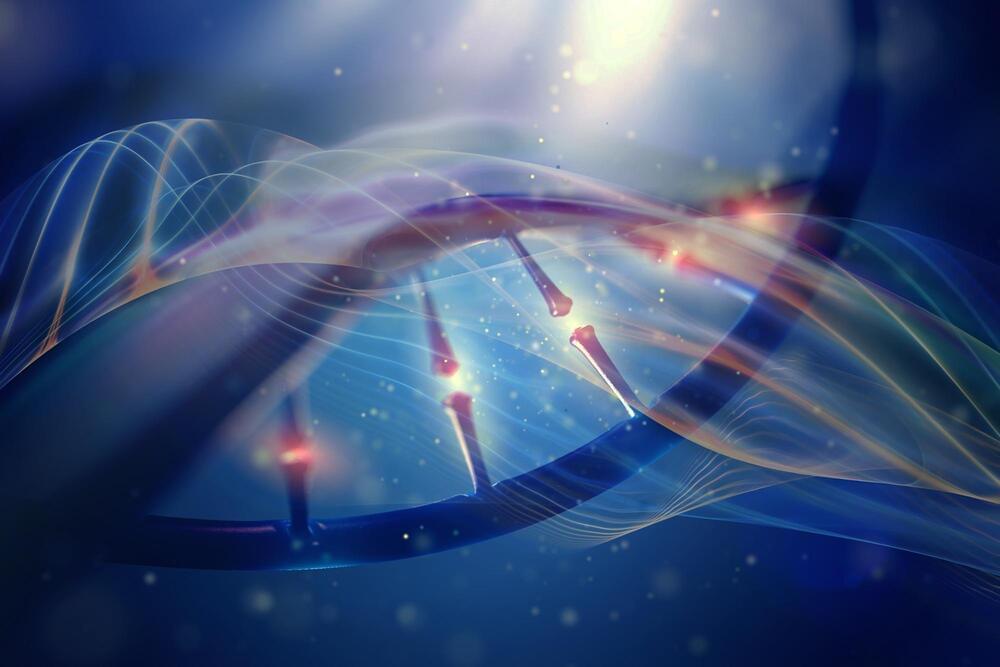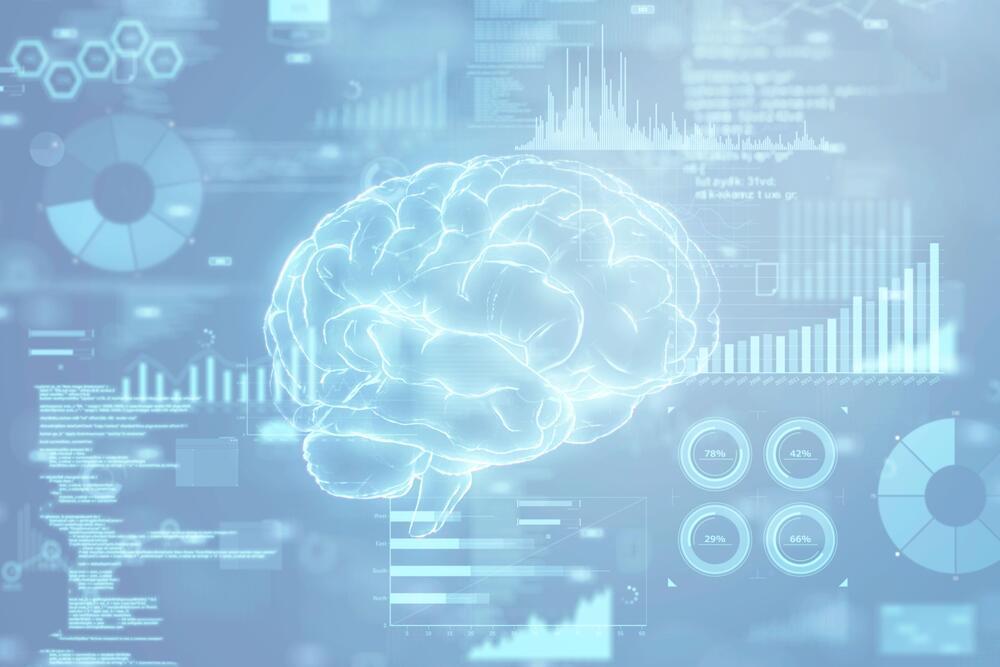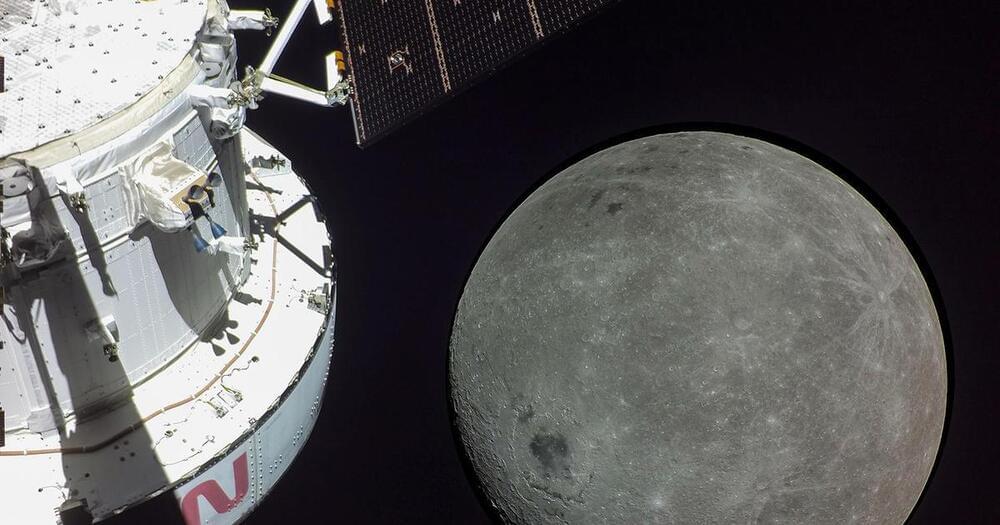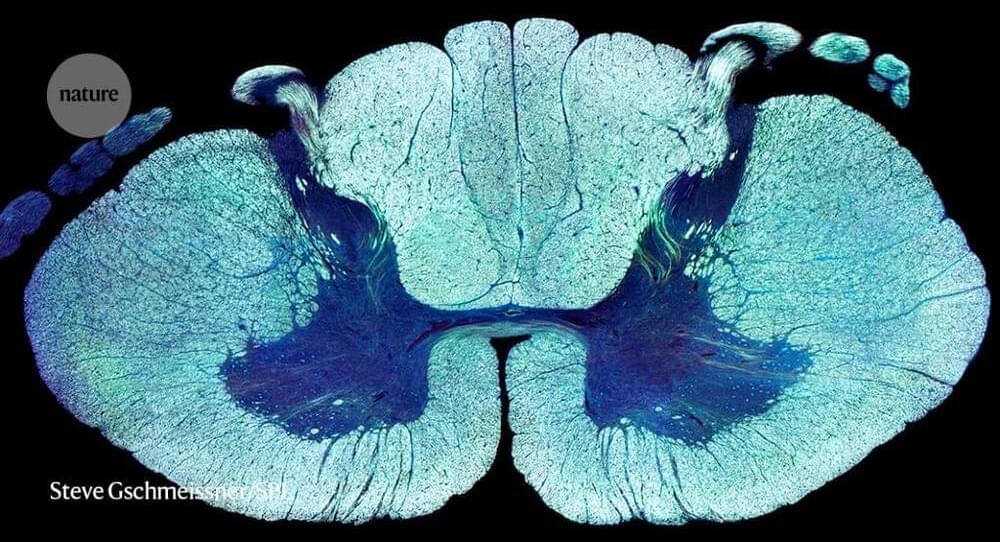Nov 22, 2022
Scientists synthesize an analog of the Earth’s most complex mineral in a laboratory
Posted by Genevieve Klien in category: materials
A team of scientists led by crystallographers from St Petersburg University has succeeded in synthesizing an analog of the Earth’s most structurally complex mineral, ewingite, in a laboratory. The findings of the research are published in Materials.
Ewingite is a mineral that was discovered in the mid-2010s in the abandoned Plavno uranium mine located in the Czech Republic. It is the most complex mineral known to exist on Earth. Moreover, because of the specific thermodynamic conditions required for its formation, the mineral is considered to be very rare.
The researchers managed to synthesize an analog with a composition and crystal structure similar to that of natural ewingite through a combination of low-temperature hydrothermal synthesis and room-temperature evaporation.
